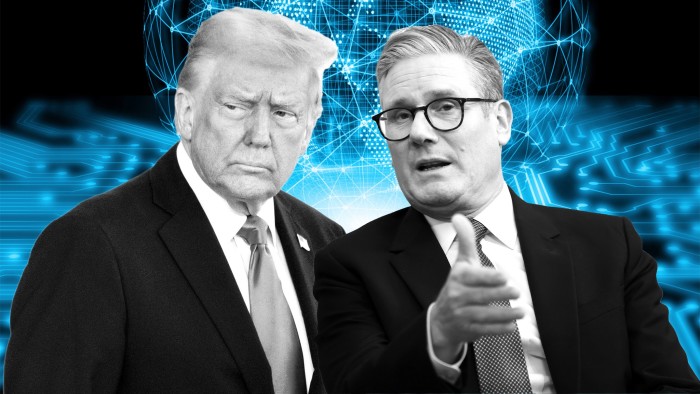UK Shifts AI Strategy to Strengthen Ties with Trump’s Administration
In a significant pivot, Sir Keir Starmer is steering the UK’s approach to artificial intelligence (AI) to align more closely with the Trump administration’s priorities. The focus is shifting from a “woke” safety narrative to one centered on security cooperation. This move aims to fortify diplomatic relationships and potentially carve out a favorable position for the UK amid complex global dynamics.
A New Identity for AI Oversight
On Friday, Tech Secretary Peter Kyle unveiled plans to rename the UK’s AI Safety Institute, established just 15 months ago, to the AI Security Institute. This change reflects a broader strategic shift: the organization will now concentrate on understanding “the most serious risks posed by the technology,” rather than addressing concerns about bias and freedom of speech. With a budget of £50 million, the institute will play a critical role in this new focus.
Earlier this week, at the AI Summit in Paris, the UK stood alongside the US in declining to endorse a joint declaration signed by approximately 60 nations, which emphasized the need for AI that is open, inclusive, and ethical. This decision hints at a deliberate choice to differentiate the UK’s approach from that of its European allies.
Navigating Geopolitical Waters
UK officials have indicated that these recent developments in AI strategy are part of a broader tactical framework, particularly as the Trump administration engages in a trade conflict with China and the EU. Aligning with US priorities over AI could offer the UK protection from potential repercussions in other sectors.
At the Paris summit, US Vice President JD Vance cautioned against “excessive” AI regulation, promoting a vision for systems free from ideological bias. Meanwhile, Elon Musk, an advisor to Trump, raised alarms about AI potentially functioning with a notion of diversity that could lead to unjust consequences.
Peter Mandelson, the UK’s new ambassador to the US, emphasized the importance of collaboration between the two nations’ tech sectors to maintain a competitive edge over China. He warned that the West must not fall behind in the technological race.
Criticism and Concerns
However, this pivot towards the US has drawn criticism from various quarters, including tech experts and civil society groups. Many argue that the UK is overestimating its significance, risking isolation from European allies while engaging in what some describe as “AI imperialism” by the US. Herman Narula, CEO of Improbable, pointed out that the US’s primary interest in the UK might be access to its market rather than genuine partnership.
To become a valuable partner, the UK may have to relax regulations, particularly regarding the use of data to train AI models, which could lead to tensions over GDPR guidelines.
Key Takeaways from the AI Summit
-
Differentiating Governance: Attendees noted that the joint declaration failed to properly address differences between democratic and authoritarian uses of AI. Critics highlighted that China was also a signatory, which raised flags about the document’s relevance and effectiveness.
-
UK’s Intentions: A Labour MP characterized the UK’s decision to opt out of the declaration as a strategic move, potentially positioning the country more favorably in the geopolitical landscape.
- Decision-Making: Officials close to the UK’s stance suggested that the reaction might be overstated, attributing it to inadequate outreach by the French summit hosts.
Future Directions
When the AI Safety Institute was first introduced, it was designed to scrutinize a comprehensive range of risks associated with AI technology, from social biases to more extreme outcomes like the loss of human control over AI systems. Currently, Starmer has postponed the release of a proposed AI Safety Bill, awaiting clearer direction from the US on its priorities.
Experts like Gregory C. Allen noted an intertwining of safety and censorship, citing past decisions made by social media platforms. Meanwhile, the UK’s AISI enjoys the status of the most well-funded institution of its kind globally, which could enhance its collaboration prospects with the US.
Nonetheless, some, including former UK national security adviser Lord Peter Ricketts, express doubt that such collaborations on AI can lead to substantial diplomatic benefits. He argues that while the US ecosystem is vast, UK contributions may remain marginal, and aligning too closely with the US could jeopardize relations with the EU.
Conclusion
As the UK recalibrates its AI strategy to strengthen ties with the US, the implications of this shift are still unfolding. With a focus on security over safety, this approach could redefine the UK’s role in the global AI landscape, but it also invites scrutiny and raises questions about the balance of power in technological innovation.
The AI Buzz Hub team is excited to see where these breakthroughs take us. Want to stay in the loop on all things AI? Subscribe to our newsletter or share this article with your fellow enthusiasts.




